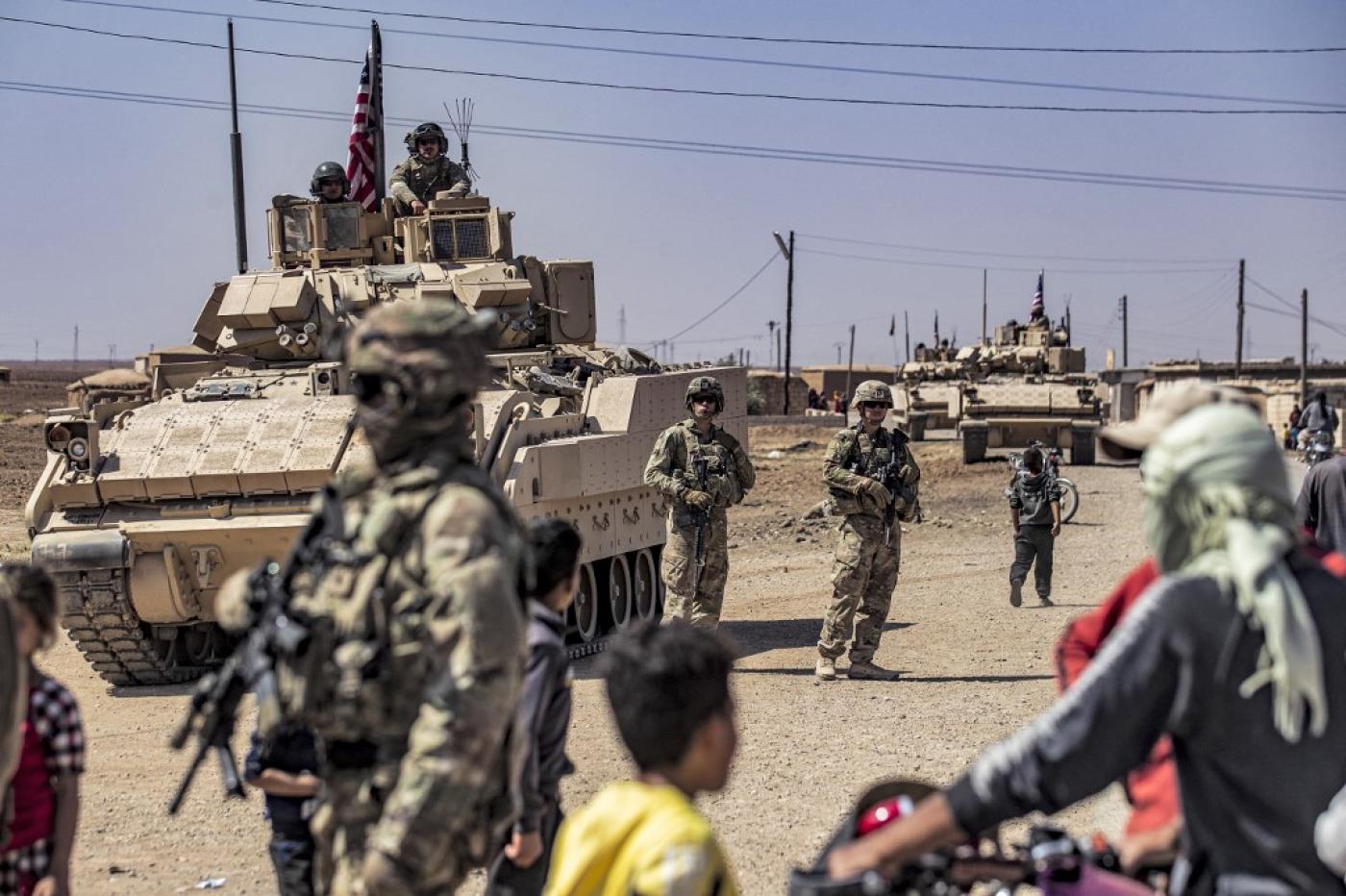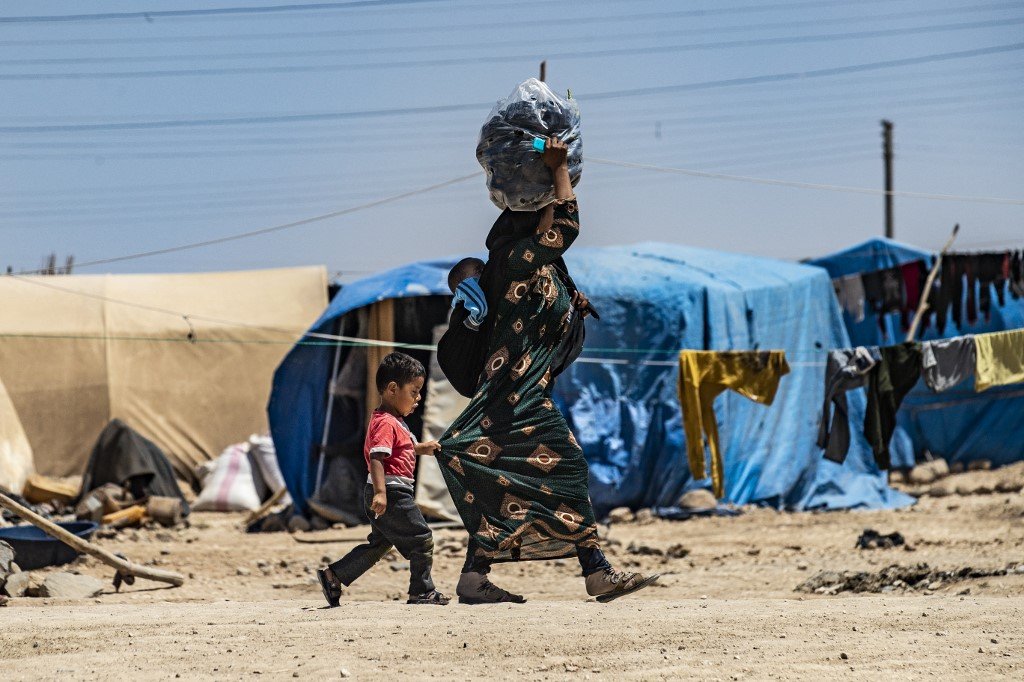The EU has ended up in the paradoxical role of bankrolling Syrian aid, while simultaneously having very little influence over the conflict
July 21, 2021

Source: Middle East Eye -Christopher Phillips
If someone were to ask who the most important external power in Syria is right now, most would probably say Russia, which intervened militarily in 2015 to save the floundering regime of President Bashar al-Assad.
Some might also point to Iran, which backed the embattled president by sending money, weapons and armed fighters; Turkey, which supported anti-Assad rebels and has occupied parts of northern Syria; or the US, which led the international anti-Islamic-State campaign in eastern Syria and continues to back the Kurdish-led post-IS administration.
Few, however, would point to the European Union. Yet, the EU is a major stakeholder in the conflict, and has been heavily involved from the beginning. Brussels placed targeted sanctions on Assad regime figures as early as May 2011 in response to the president’s violent crackdown on protests, which sparked the war.
Likewise, the leading EU powers of France, Germany and, at the time, the UK, joined former US President Barack Obama in calling for Assad to “step aside” a few months later. The economic sanctions regime they initiated, including banning imports of Syrian oil, had a far greater impact than Washington’s, as the EU was Syria’s biggest trade partner. This, in turn, contributed to Assad’s increasing economic dependence on Moscow and Tehran. Indeed, until the harsh US Caesar sanctions were introduced in 2019, European sanctions hit Syria’s economy hardest.
Coalition against IS
As well as sanctioning Assad, the EU sponsored his opponents, with France and the UK especially active in providing non-lethal aid to rebel fighters and oppositionists. London and Paris also joined Washington in air strikes against Assad’s forces in 2018, and had been prepared to do so in 2013, before the UK parliament vetoed any involvement. All EU members, moreover, joined the global coalition against IS, with many sending combat forces into eastern Syria.
At the same time, EU members have been significantly impacted by the effects of the conflict, with more than two dozen terrorist attacks linked to IS in EU states since 2013, killing hundreds of people.

Displaced Syrians are pictured in Hasakah province on 28 June 2021 (AFP)
EU members, particularly Germany and Sweden, have received more than a million Syrian refugees, while Brussels continues to spend considerably on the consequences of the war, being the largest donor of aid. Of the €5.3bn ($6.2bn) in aid money pledged to Syria by the international community in 2021, €3.7bn came from the EU (€1.12bn from the European Commission and €2.6bn from member states).
In total, it is estimated the EU has spent €24.9bn ($29.32bn) on aid since 2011. With fears that Syria could erupt into conflict once more, or collapse into a failed state on its doorstep – sending further refugees or terrorists its way – this aid is unlikely to dry up anytime soon.
Clearly, the EU has a lot at stake in Syria, and it has expended much energy and money on the conflict. Yet, its influence is negligible compared to others, for two primary reasons.
Structural weaknesses
Firstly, the EU’s own structural weaknesses make it difficult for it to lead on any foreign issue. Uniting 27 (previously 28) members on a single strategy towards Syria has been challenging. Several states objected to sanctions in 2011, while today, at least five members are hoping to improve relations with Assad, despite Brussels’ official line of no reconciliation without political concessions.
The more powerful players in Paris, Berlin and, previously, London, have largely been able to cajole the more sceptical members to agree on a united line. But holding this coalition together limits how assertive and activist the union can be.
Secondly, the EU lacks the military capacity needed to significantly increase its influence in Syria. The early years of the war were largely fought between Syrians backed financially by outside players, and this might have been an opportunity for the EU to up its influence. But once Iran, Russia, Turkey and the US began sending their own forces, plus foreign allies in the case of Iran, the conflict shifted to one requiring a military presence to garner influence.
With Brussels lacking its own military and the members with the largest militariesunwilling to deploy them, it would have been tough to implement a more interventionist policy, even if the EU had been able to agree on one.
With these obstacles unlikely to change, the EU looks set to be in the paradoxical role of bankrolling Syrian aid, while simultaneously having very little influence over the conflict. Most members remain committed to maintaining sanctions and refusing accommodation, in line with the US.
While the EU could theoretically amplify its influence by diverging from Washington and opening a dialogue with Damascus, such a rupture with the White House would be too costly for too little gain, and thus seems unlikely. Instead, Brussels will continue as it has: paying for the consequences of the war, limiting the spillover at home, and hoping someone else will ultimately sort out a mess it actually bears quite a bit of responsibility for causing.
